Table of Contents
- So, how to stop procrastinating and improve your productivity?
- 1. Make a to-do list your friend
- 2. Prioritize your tasks
- 3. Stay organized
- 4. Break up large tasks into smaller pieces
- 5. Reward yourself for completing tasks
- 6. Make your deadlines realistic
- 7. Give yourself a break
- 8. Forget perfectionism
- 9. Eliminate distractions
- 10. Don’t put things off for tomorrow that you can do today
- 11. Try the 20-minute rule
- 12. Do some reflection
- Concluding remark
What is procrastination?
Procrastination is doing something else and delaying what needs to be done.
This post discusses some tips on how to stop procrastinating and improve your productivity massively.
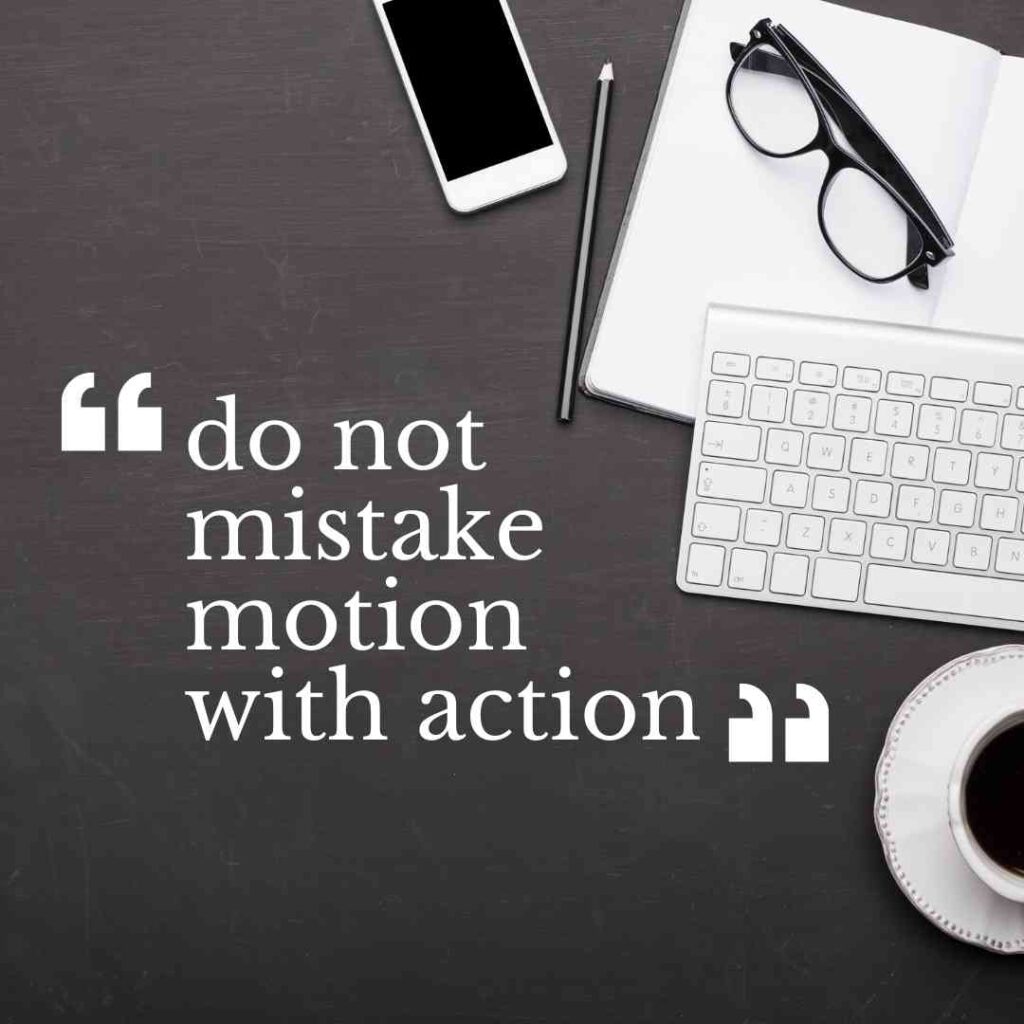
Procrastinating is one of those things that just about everyone does. I am one of those falling victims to procrastination.
Whether it’s putting off an important task or procrastinating on something you enjoy doing, procrastination can really be a problem and keep you from being as productive as possible.
So, how to stop procrastinating and improve your productivity?
If procrastination has been your enemy and you need some guidance to begin improving your productivity and show results, the following are 12 tips for you.
1. Make a to-do list your friend
The first step you can take to stop procrastinating is to list tasks that need to be done for the day. Use a notepad or your phone to jot down all the tasks that you need to accomplish.
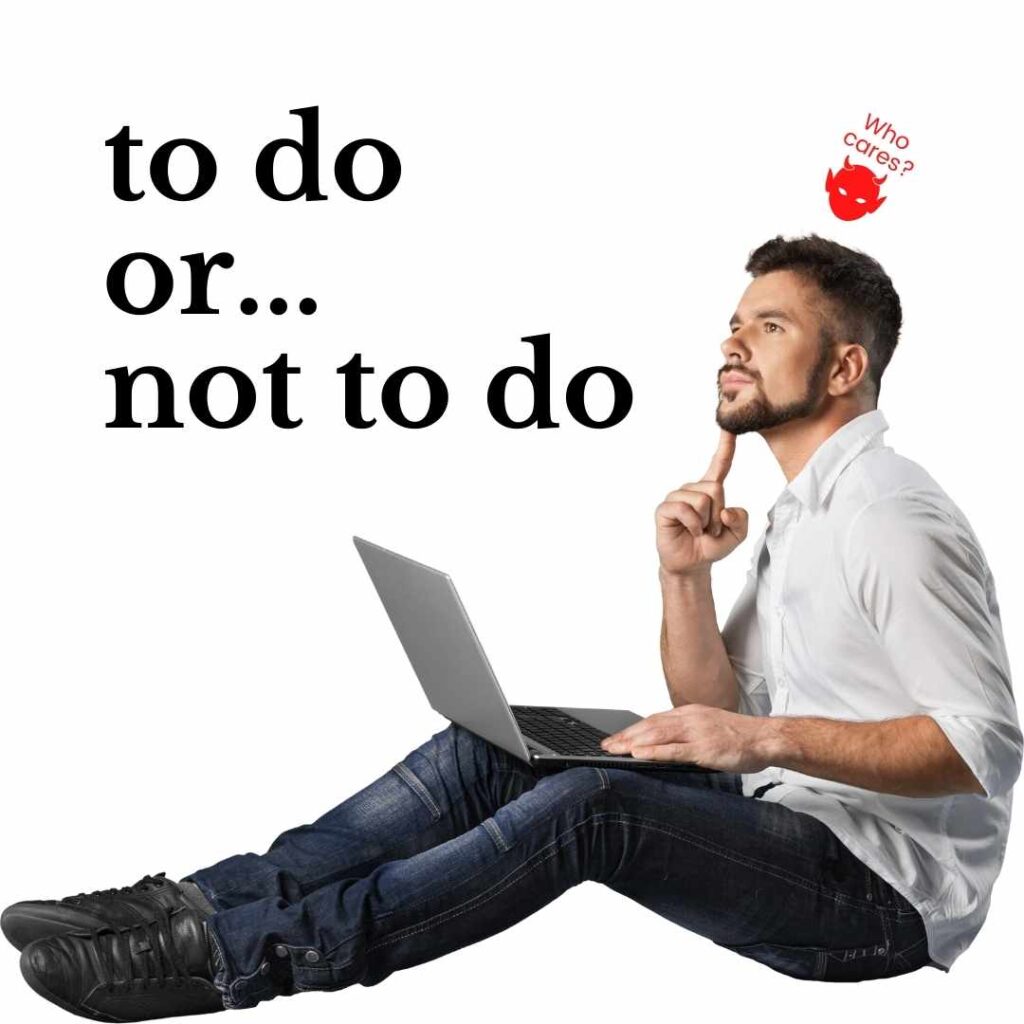
I use Google Calendar (you can schedule events such as meetings and add tasks) to note down important tasks.
Every morning, I will routinely access the calendar and assess the activities and tasks I will be involved in.
The list includes both work and personal matters.
So, for example, if I need to do some personal errands during the lunch break (like buying supplies), I can plan to complete all the necessary tasks before lunch.
I love the Google Calendar app since I can conveniently view and edit using my mobile phone and laptop. But if you are a person who carries a notepad along, use it!
Use whatever method that works optimally for you. It’s all about choices.
2. Prioritize your tasks
Inevitably, some of the tasks on your to-do list need more attention. Prioritize accordingly.
A long list of tasks may seem overwhelming. Things get scary. When people get scared, people begin procrastinating.
This is where prioritization helps.

For instance, between preparing your boss’s PowerPoint slides for tomorrow’s big meeting and finishing the quarterly reports in 5 days, the former takes precedence. The report needs to give way to the slides.
Once you have a list of tasks, weigh your options. This means taking an honest look at what needs to be done and when it needs to get done for everything else on the list not to fall through completely.
Be flexible. There will be times where your own deadlines need to be moved to different days to accommodate some urgent matters that show up.
3. Stay organized
Find an organizational system that works for you and stick with it.
Whether using a planner, productivity apps, a reminder system, to-do list software or just writing everything down in a notebook, staying organized is key to stopping procrastinating.
Being organized also having an organized desk or office. This does not mean that your desk should be squeaky clean and 100% free of dust.
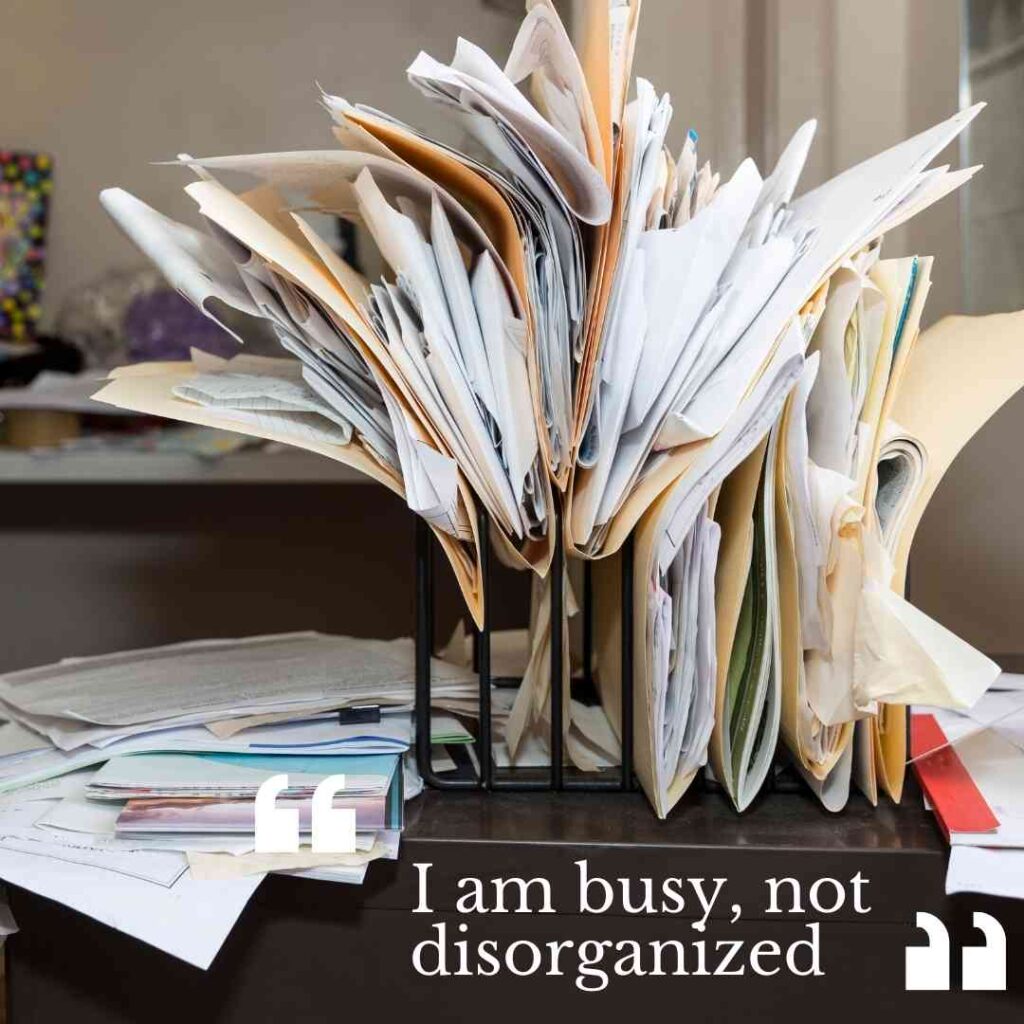
I don’t mind seeing an office with some clutters here and there for as long as things are easy to reach or retrieve. Some people argue that clutters equal creativity.
Well, whatever works…
An organized office will have proper document folders/trays and storage and desks and tables optimized for long hours of sitting and producing.
Even a simple thing like an alarm clock can help you stay organized.
Failing to stay organized can lead to procrastination and the problems it causes (like missed deadlines) to snowball out of control.
4. Break up large tasks into smaller pieces
It can be overwhelming to look at a large task that needs to get done, but sometimes just looking at it as one big daunting block is enough for procrastination to kick in.
Instead of trying to tackle everything all at once, break up those tasks into smaller milestones.
For example, say you plan a big launch for your company’s latest product lining in 8 months. Plan the smaller goals before you reach the big event.
In two months, you can aim to finish all the user testing. In month four, you can begin the beta version. When things are OK, you can do a soft launch a month later.
The list goes on.
When things are broken into smaller, achievable goals, things look pretty neat. Don’t they?
Breaking goals into smaller milestones not only helps you procrastinate less, but it’ll also make the task itself feel more manageable and approachable.
When trying to stop procrastinating, it’s important not to lose sight of your ultimate goal for everything else on this list to work properly.
After all, procrastination starts with distraction, so if you’re constantly looking at the future and what needs to get done next, procrastination won’t be able to take hold.
5. Reward yourself for completing tasks

When you complete a task, reward yourself.
Rewards do not have to be fancy, like an Apple Watch or a trip to Bali.
A reward can be as small as treating a friend to a nice lunch. Or spending a Saturday binge-watching Friends sitcom. Or simply taking a break doing nothing for an entire Sunday.
It’s a psychological fact that people procrastinate when they’re not getting the encouragement and support they need from themselves.
A reward, no matter how small, will reenergize you.
Rewarding yourself for tasks completed is one way of encouraging you to do more, especially with overwhelming projects or long deadlines.
6. Make your deadlines realistic
Yes, make your deadlines realistic.
This will not only help you procrastinate less, but it’ll also make the task itself feel more manageable and approachable.
Setting a realistic deadline is often the difference between procrastination and productivity. But many people fall prey to thinking that reasonable deadlines mean exhibiting mediocre performance.
Many a time, realistic deadlines come from the inability to envision things in smaller goals. Therefore, to make things work, deadlines should complement milestones well.
Deadlines should also consider the resources you have and the limitation of these resources (or the lack of them) to your project.
Procrastinating is not just about getting sidetracked or distracted, but it’s also about setting unrealistic goals in the first place because these are often too big to handle all at once.
7. Give yourself a break
Give yourself a break from time to time to recharge your batteries.

Plan a two-week trip to hike up Mount Kilimanjaro. Or spend a week back in your hometown, visiting your parents and the folks.
What is important is that during these breaks, you should be free from attending work matters and only focus on yourself, your family and your personal matters.
Taking breaks can hinder work burnout. Some people go on working for months without taking any break or holiday.
Sometimes, things show up unexpectedly, such as medical problems arising from prolonged work. Then they realize maybe they have not been paying attention to their own wellbeing.
8. Forget perfectionism
No one is perfect.
Even a perfectionist is not perfect.
Perfectionists often procrastinate because they’re trying to make every aspect of their work perfect, which is obviously not possible and only serves to drive them crazy with frustration.
Instead of thinking about what needs to be done to be perfect, focus on getting things done right instead.
Inevitably, errors occur all the time. What is important is that we learn from these mistakes and make ourselves better over time.
Perfectionism can also break a team apart. Not all people can stand a perfectionist. Arguments erupt, people scream at each other, team members get personal and the outcome?
No need to guess.
9. Eliminate distractions
Eliminate all those elements that would distract your work and your productivity.
Put your phone on silent, switch off the Internet (well, if the Internet is part of work, then keep clear of unwanted distractions) and clear away anything that might attract you.

Allocate slots where certain things can be done in batches at once. For instance, I spend about a good 10 minutes clearing (read, respond, delete, archive, etc.) my emails in the morning.
This will not only help you procrastinate less, but it’ll also make the task itself feel more manageable and approachable.
I also learn how to defer reading personal messages, even though this can be somewhat difficult since messaging platforms such as Whatsapp, Telegram and so on have become so mainstream in work.
10. Don’t put things off for tomorrow that you can do today
If there are certain tasks on your to-do list, get them out of the way now, so they aren’t still hanging over your head later in the day when you need to be focused and productive.
One of those good small things I enjoy doing is deleting or marking a task complete.
And when the entire tasks for the day are complete, I will beam with a big smile, celebrating a small but significant triumph. I can reward myself by reading that book I have been trying to finish for weeks.
If it is a long-term project, start today. Start writing that book proposal. Start drafting that business venture proposal you have been delaying.
So don’t wait. Waiting until tomorrow only gives procrastination more time to take hold and makes you feel overwhelmed.
11. Try the 20-minute rule
If you’re having trouble getting started on a task, try to make it through just 20 minutes of work before taking a break.
This is a great procrastination tip for those who are having trouble pushing through the barriers that stand between them and their work productivity because once you make it past the first 20 minutes, chances are good that you’ll keep going without procrastinating any further.
It is a good psychological approach that many have applied in different aspects of life, including personal development and sports.
When you do a thing long enough, you will step into “the zone,” and you will put yourself into a “flow.”
Being in this zone will prime you for a supreme performance.
So beat that laziness inertia and begin producing.
12. Do some reflection
From time to time, reflect on how you have been doing.
Have you managed to stop procrastinating and begin producing results?
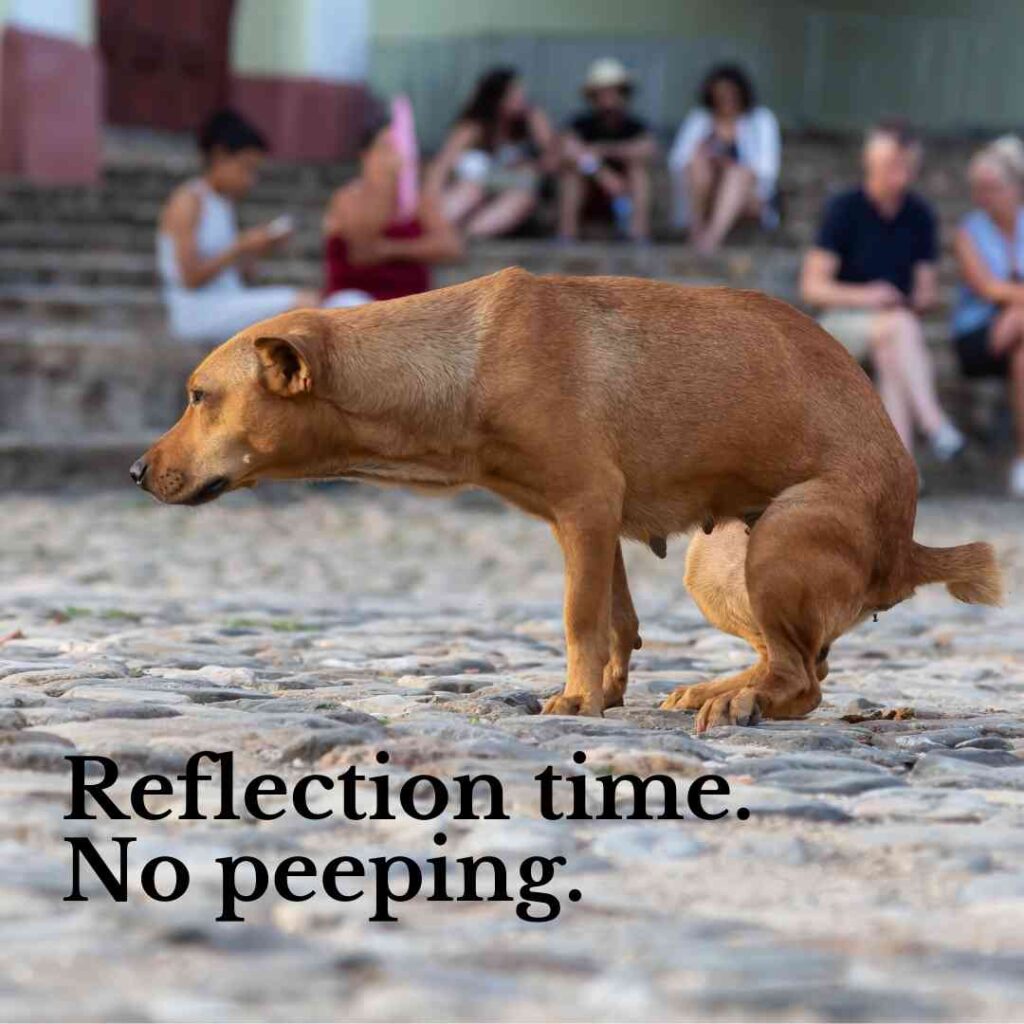
If you have managed to reduce procrastination using these tips, pat yourself on the back! You will only get better, become a more effective worker, and be an outstanding performer.
Look back. Identify those that work for you and those that don’t.
Double down on those efforts that beat procrastination and improve your work productivity. Continue developing your potential and maximizing your ability.
You will prove yourself a winner.
Concluding remark
The procrastination cycle can be hard to break, but you’ll have a better chance of succeeding with the right tools and strategies in place.
Do these, and you will become someone else. You will produce something else.
I also learned that procrastination is an effect rather than a cause. This may sound baffling, but reflecting on it, there is a lot of truth in it.
If we can identify the causes that make us delay things, we can begin producing results and beat procrastination. You will turn things around in no time once you begin to understand and identify those things holding you back.
I hope these tips (if not all, maybe a few) on how to stop procrastinating and improve your productivity can have a long-lasting impact on your career.
Major changes are difficult, but if we break them into smaller achievable goals, you can envision big results optimistically.
What are some of your favorite tips for increasing productivity and stopping procrastination? Did I miss anything that I should otherwise add? Do comment below.
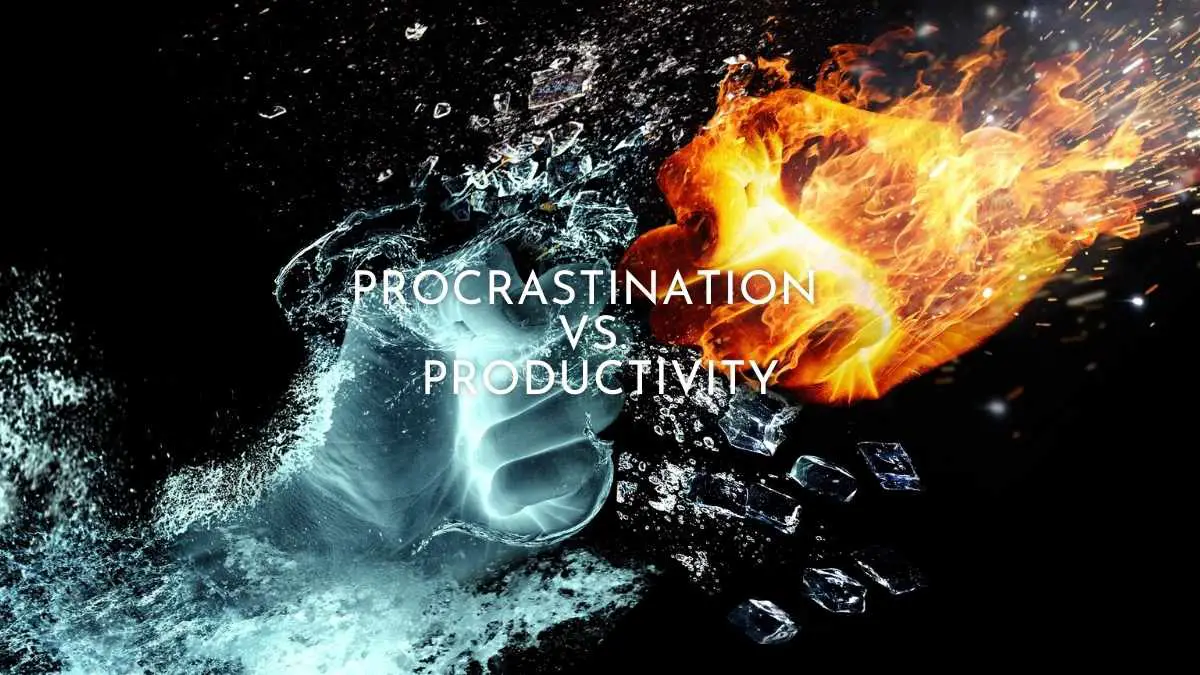
5 thoughts on “12 Tips on How to Stop Procrastinating and Improve Your Productivity Massively”